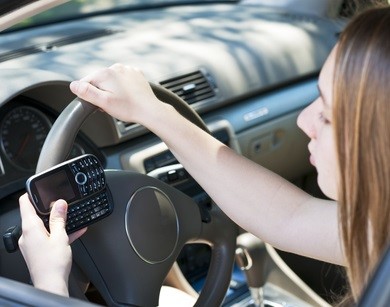

The next blog post in our series about digital parenting and distracted driving comes from Jani Spede, the CEO of The Canary Project, a safe driving app for iPhone and Android. Here is Jani's take on the idea of using pledges to deter distracted driving.
If your teen has taken a pledge, does that mean you can check the potential harm or unwanted behavior off your list?
Research on the effectiveness of pledges suggests that you cannot – and more importantly – should not. Analysis of data from a large federal survey found that more than half of youths became sexually active before marriage regardless of whether they had taken a "virginity pledge." Similarly, researchers of cyber bullying pledges commented, “Pledges lose their meaning if everyone is doing it because it ceases to be non-normative.”
A pledge can be the beginning – but not the beginning and the end – to a behavior change. As I read more articles from experts on how to make popular virginity and bullying pledges effective, I quickly discovered that the same proactive approaches must accompany distracted driving pledges in order for them to work.
One key to getting pledges to work, according to experts, is illumination. Parents must keep a dialogue open and provide incentives, reminders and reinforcement. Not much will be achieved by simply asking your teen, “Did you text and drive today.” You’ll likely get eyes that roll and “Jeez, Mom!” A similar response might come from asking your virginity-pledge taking teen, “Did you have sex with anyone today?”
Studies have shown that the most effective way to reach teens is with a combined approach of education and reflection.I contacted Stan Davis, who has done extensive research on pledges, and told him about Canary, our app that tracks exactly when and how your teen uses a smartphone on the road. “I think there is promise in having the individual make an estimate and then having data to confirm or deny their own estimate,” he said, adding that it could have the same positive impact that journaling about food intake can have on diet and nutrition.
Borrowing from the ideas Davis and other experts suggest to help change teens behavior, and applying them to distracted driving, I offer the following tips. But wait, before reading these tips – and this is by far the most critical piece of all – you, as a parent, must be willing to do the same. If you are setting a poor example by driving distracted, this will never work. Pot, meet kettle! For those parents that care enough to lead by example and save lives, read on:
Predict: As Davis offered up, teens (and I say this goes for parents too) should estimate how often they currently use their phones while driving. Some experts say that this will be most effective if the teen does not turn in the estimate to the parent, but it is important to write the prediction down.
Commit: Commit to improving your current trend by some percent. Set weekly achievable goals, even if they’re baby steps.
Encourage: Help teens see their potential to be among the safest drivers and part of the solution to a huge problem. Let’s face it, we are counting on this generation!
Reflect: Talk about the day’s distracted driving news (reports on accidents, status of states’ distracted driving laws, new statistics, etc.). Point out all the distracted drivers on the roads. Honor anything your teens do to help prevent others from driving distracted (offering to be a “designated texter,” etc.).
Track/Measure: Use an app like Canary to track exactly when you and your teens use smartphones while driving. Review these “report cards” each week and keep a conversation going about how you are both doing.
Reward: Develop a reward system for excellent driving. It could be a respite from chores, a shopping trip, a movie or tickets to a game. Be willing to invest in this. It will be worth every penny. Information can be sobering. Measuring performance improves performance. With the right tools and a proactive approach, parents can be at the forefront of the battle against teen distracted driving. It all comes down to how proactive and accountable you are willing to be and how much you care.
Are you and your teens safe from distracted driving? Get the facts and solutions in this infographic.



